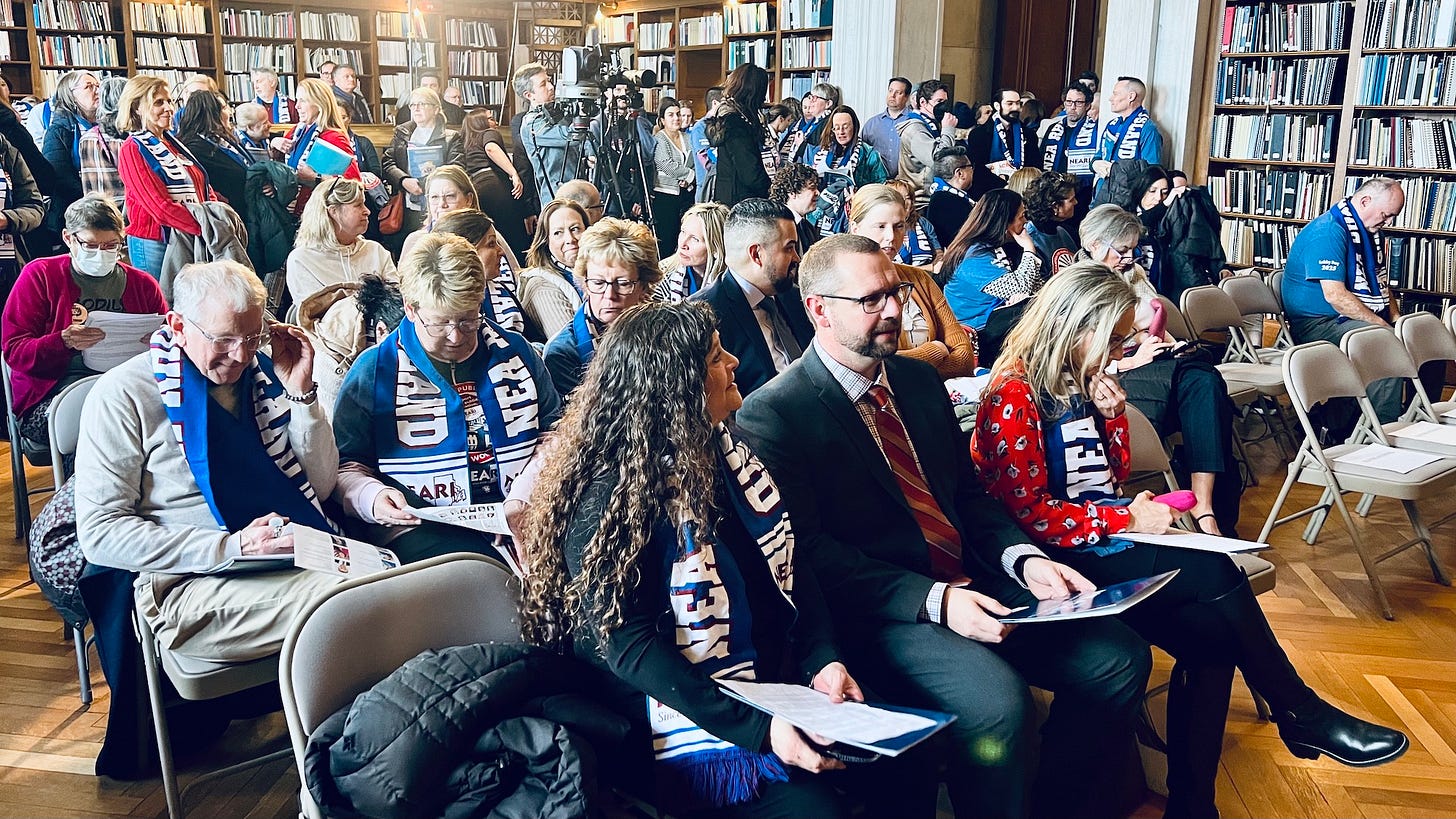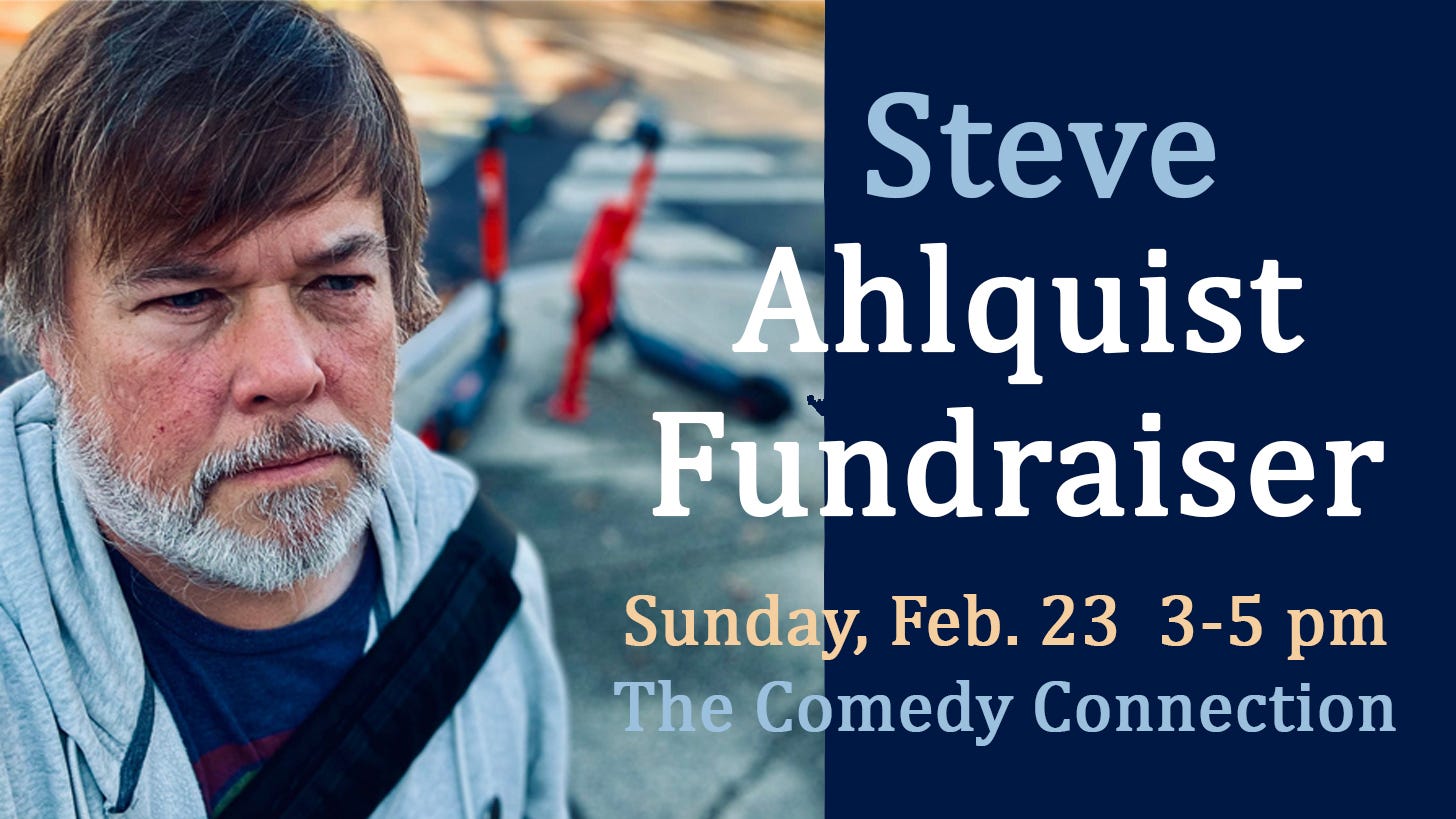National Education Association Rhode Island unveils its 2025 legislative agenda
"Student health and wellbeing is a major focus of our legislative agenda this year."
The National Education Association Rhode Island (NEARI) today announced its priorities for 2025 to a packed gathering at the State House. The gathering included lawmakers and officials, issue allies, and NEARI members representing educators and school support staff from Kindergarten to college, municipal and state workers, and retirees.
“Each of our members has dedicated their life to public service, bringing unique skills and expertise to their workplaces - whether in laboratories and libraries, town halls and State offices, or colleges and classrooms – and they deserve a fair wage, good benefits, and a secure retirement,” said NEARI President Val Lawson.
Speakers highlighted education funding, a statewide cell phone policy, a student safety and behavioral health committee, and support for the assault weapons ban as the legislative session’s focus.
“This year, student health and wellbeing are a major focus of our legislative agenda,” said NEARI Communications Director Stephanie DeSilva Mandeville. “We are working with parents, allies, and lawmakers to tackle the root causes that hinder learning, engagement, and meaningful social interactions in safe, welcoming public schools.
“We must ensure that when students struggle with stress or emotional regulation, the right supports are in place. We are introducing legislation to require every District to establish a Student Safety and Behavioral Health Committee. This committee – comprised of educators and administrators – would assess existing supports, review intervention procedures, and identify additional resources needed to ensure every student receives the care and education they deserve.”
South Kingstown math teacher Brian Nelson spoke about the “profound positive impact” of the District's recent cell phone ban.
“Ultimately, this policy has benefited our entire school community,” said Nelson. “Improved focus, better mental health, stronger academics, deeper social connections, and a more manageable classroom environment demonstrate the value of limiting school cell phone use. A strong, clear policy works. I’ve seen firsthand how it has transformed the learning environment in South Kingstown, and now is the time to bring these benefits to students across Rhode Island.”
Melissa Taylor of South Kingstown said paraprofessionals are critical to student wellbeing, serving as additional eyes in the classroom. They are often first to recognize when a student is in crisis – academically, socially, or emotionally – but the first positions to get cut when budgets are tight.
“Paraprofessionals are essential—not only for academic support but also for identifying and addressing students’ mental health needs,” she said. “Yet, every year, we see budget cuts, and too often, paraprofessionals are among the first to go. The reality is, we need more paras in classrooms, not fewer.”
Addressing gun safety legislation, Jen Saarinen, a math teacher at Kickemuit Middle School in the Bristol Warren Regional School District, thanked legislators and the governor for passing the Safe Storage Act last year, but there’s more work to be done to keep schools and communities safe.
“Assault weapons have one purpose: to kill as many people as possible, as quickly as possible,” said Saarinen. “These weapons of war have no place in our schools, our communities, or on the streets of a civilized society. I am heartened to see that Governor McKee has made banning assault weapons a priority by including it in the State budget. If a budget reflects our values, this sends a clear message: the time for action is now.”
This year, seven public higher education unions are negotiating contracts, while institutions like CCRI and URI are grappling with tight budgets. Cynthia Johnson, associate professor in the dental health department at CCRI, said the program’s students will earn more than the educators who help them reach their career potential.
“I love working with my students, ensuring they have the support and resources to succeed. But while we uplift our students, we, as educators, are struggling. My base salary is less than what my students make upon graduation,” said Johnson. “This problem isn’t unique to CCRI. At URI, our graduate assistants and professional staff drive innovation and education, bringing millions into our State. Yet, they too struggle with the high cost of living and low wages.”
At the close of the event, NEARI members in attendance followed the announcement by talking one-on-one with legislators, urging them to support student health and wellbeing, strong public education, and the wages and staffing Rhode Island workers deserve.
2025 NEARI LEGISLATIVE PRIORITIES
Student health and wellbeing is a major focus of our legislative agenda this year. We are working with parents, allies, and lawmakers to tackle the root causes that hinder learning, engagement, and meaningful social interactions in safe, welcoming public schools.
Improved Funding for Public Education, from pre-k through public higher ed
Rhode Island students deserve quality education from pre-K to college. Our members provide that every day, but we need more support. This year, seven public higher education unions are negotiating contracts, while institutions like CCRI and URI are grappling with tight budgets. Our political efforts will prioritize advocating for increased higher education funding to support fair contracts, including meaningful raises.
We will once again stand strongly against any proposed cuts to K-12 education. Last session, we successfully fought against cuts in districts like East Providence, Westerly, and Middletown, and we are prepared to do so again.
Student Safety and Behavioral Health Committee
Educators and frontline staff must have a voice in policies addressing student behavior and mental health. We support legislation to require each district to have a Student Safety and Behavioral Health Committee, where educators and administrators work together to analyze what supports are currently available, what procedures should be followed, and what additional resources are needed to ensure all our students get the support and education they deserve.
Cell Phone Policy
We support legislation requiring every District to establish and implement policies to limit cell phone use during instruction. Such policies have been shown to reduce distractions, improve mental health, and strengthen the learning environment. It’s time to take these lessons statewide.
Assault Weapons Ban
Firearms are the leading cause of death among U.S. children aged one to 19.
For safer schools and communities, NEARI will again support the ban on the possession, sale, and transfer of assault weapons.
Further Pension Improvements
Our organization has continually fought for pension relief for all. Last year, we won the first improvement to our pension in 38 years. This year, we’re continuing the fight toward restoring what was promised to dedicated public workers.
About NEARI
The National Education Association Rhode Island (NEARI) is a union and professional organization with a proud history of serving Rhode Island since 1845. NEARI is 12,000 members strong; we are classroom teachers, education support professionals, higher education faculty, staff, and graduate assistants, municipal and State workers, and retirees. We are affiliated with the National Education Association (NEA) and RI AFL-CIO. Learn more at www.neari.org.




